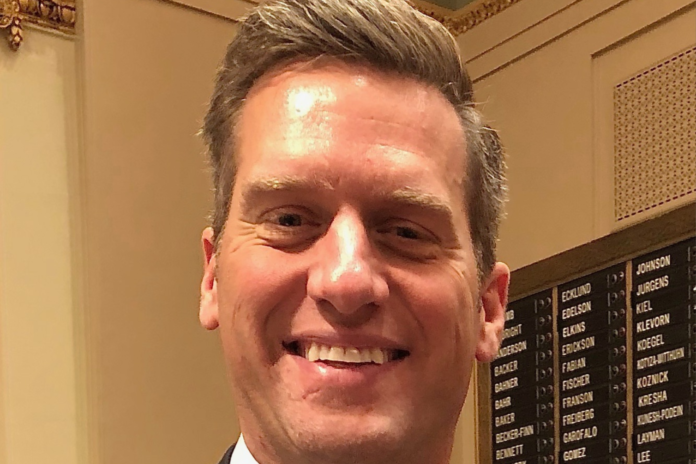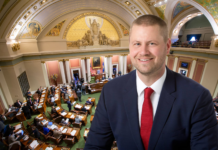Rep. Kurt Daudt, current House Republican Minority Leader, and former Speaker of the Minnesota House from 2015-19, has been hired by Stateside Associates as a “Director of Public Affairs.” Stateside Associates is a D.C.-based lobbying firm that specializes in lobbying state and local governments for large multinational corporations. Existing or former Stateside Associates clients include Starbucks, Visa, Comcast, Kohl’s, and GlaxoSmithKline.
Daudt’s gig
The press-release announcing Daudt’s hiring states that the “role is part-time and does not involve lobbying,” which allows Daudt to “continue to serve in the Minnesota Legislature.” The press-release also says that Daudt is being hired by Stateside Associates because he can provide the firm with “access to elected and appointed leaders in all 50 states” and has a “deep knowledge of the legislative process.”
Indeed, Kurt Daudt has been an accomplished legislator. In one example, he increased infrastructure funding without increasing the gas tax. In another example, he authored legislation to crack down on the use of food stamps for alcohol and tobacco, along with ending other abuses of food assistance.
And while Daudt will certainly be bringing his expertise into play when it comes to lobbying in other states, it is hard to argue that Daudt’s position won’t be an issue when Stateside Associate’s clients also have interests in Minnesota.
Minnesota does have a law against legislators acting as lobbyists, and even prohibits legislators from registering as lobbyists until one year after they leave office. Daudt’s situation is more of a legal grey-area, however. Daudt won’t be directly lobbying, but will instead work with the lobbyists and play more of a consultancy role. Whether or not this is a distinction without a difference will be ultimately up to the voters.
Of course, this isn’t the first time a legislator’s out-of-session employment has come under scrutiny. Earlier in the year, DFL State Rep. Jamie Long got into trouble over a gig at the University of Minnesota, via a grant made by an outside donor that seemed earmarked for Long’s employment when the legislature wasn’t in session.
A broader problem
These troubles may be a symptom of a broader problem. State legislators only receive $45,000 per year in Minnesota, and the last legislative session lasted about five months. $45,000 for five months work isn’t awful, but problems arise for legislators when trying to find employment during the other seven months. Most state representatives are highly educated and qualified. But, quite obviously, most professions don’t allow employees to be absent for almost half the year.
A quick search of current Minnesota House members reveals a disproportionate number of teachers, attorneys, business consultants, and insurance and real estate brokers. It’s no coincidence that all of these jobs are, or can be, more-flexible than the average job. There’s small business owners on the list, but even then it’s probably a certain type of business, or a special type of business-arrangement. Most people who run a small business would have a heart-attack if you asked them to step away for five months.
The current system was created for citizen-farmers, not the 21st century. It’s good to have the legislature not operate year-round, but we don’t want our representatives to become money-grubbers in the off months.
Those against increasing legislator’s pay will mention career politicians, but a quick look around St. Paul already reveals oodles of careerism. There’s new blood in the legislature because the Republicans lost so many seats in 2018, not because of normal turnover. By the way, what does Daudt’s new job do to Republicans’ prospects of winning the House back?

















